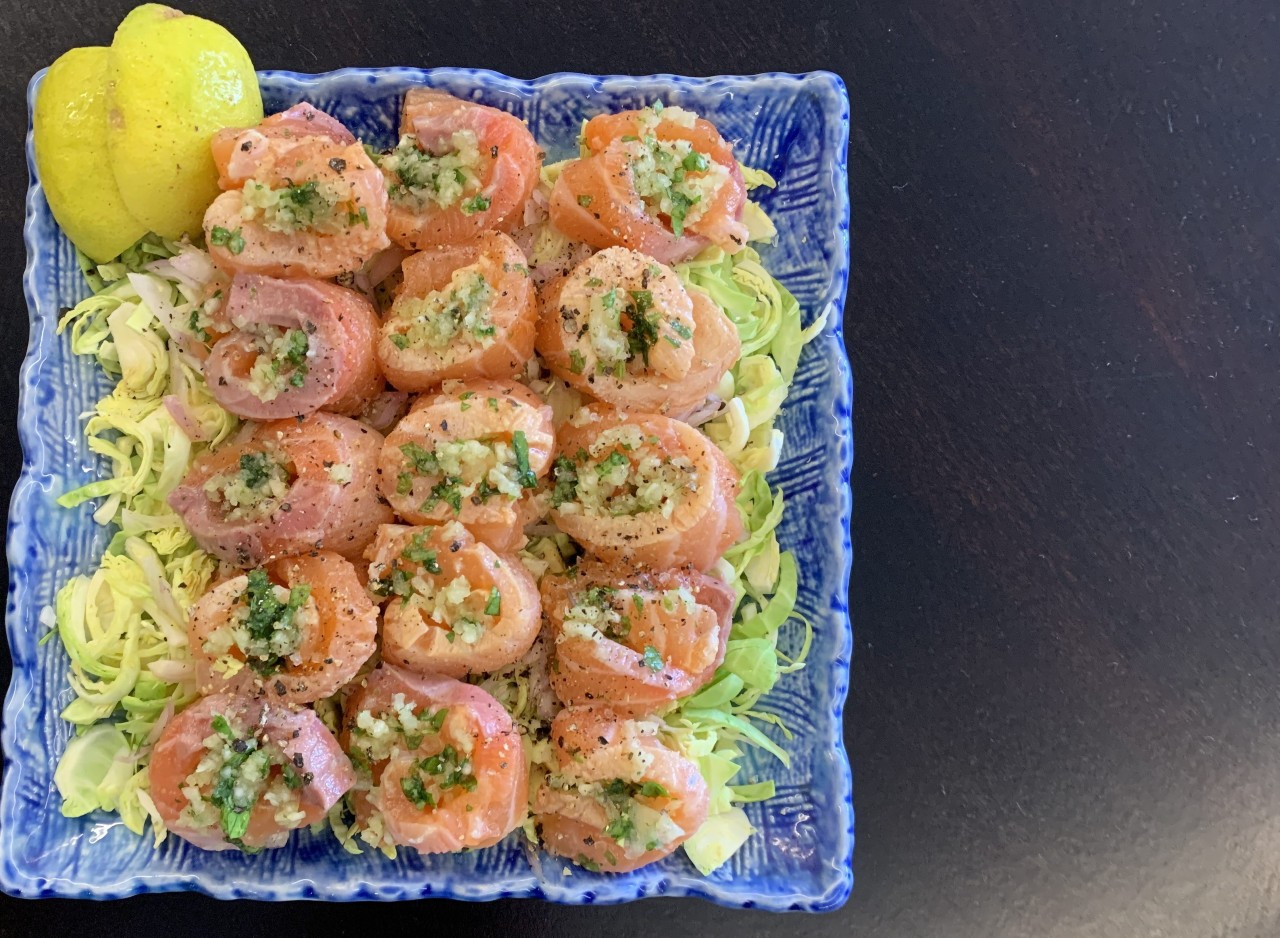 GIN-cured salmon soaking in peppery Japanese gin marinade perked up with garlic and mint makes for a palate-cleansing appetiser. Spicy long peppercorn mellowed by the floral accents of roselle and citrusy fruitiness of shekwasa all make Okinawa gin the perfect curing agent for fatty salmon. Simple and quick to prepare, this dish, laced with alcohol will most definitely get Christmas dinner conversations going and keep up the partying spirit!
GIN-cured salmon soaking in peppery Japanese gin marinade perked up with garlic and mint makes for a palate-cleansing appetiser. Spicy long peppercorn mellowed by the floral accents of roselle and citrusy fruitiness of shekwasa all make Okinawa gin the perfect curing agent for fatty salmon. Simple and quick to prepare, this dish, laced with alcohol will most definitely get Christmas dinner conversations going and keep up the partying spirit!
Total Time: 45 minutes
Difficulty: 1/5
Cost: S$25.00
Serves: 5 persons
A: Salmon
350g salmon fillet
B: Marinade
50ml Okinawa Gin
3 tablespoons white or apple cider vinegar
2 tablespoons light soy sauce
Half a lemon
C: Aromatics
Half a head garlic, finely chopped
Handful of mint leaves, finely chopped or blended
1 teaspoon Cambodia kampot pepper or common pepper, coarsely crushed
1 teaspoon Kosher or coarse salt
DIRECTIONS:
1. Combine B ingredients in an elongated dish large enough to accommodate the salmon.
2. Place salmon skin-side up on inside dish. Using a tablespoon, scoop marinade over the fish. Chill salmon in the fridge for 30 minutes.
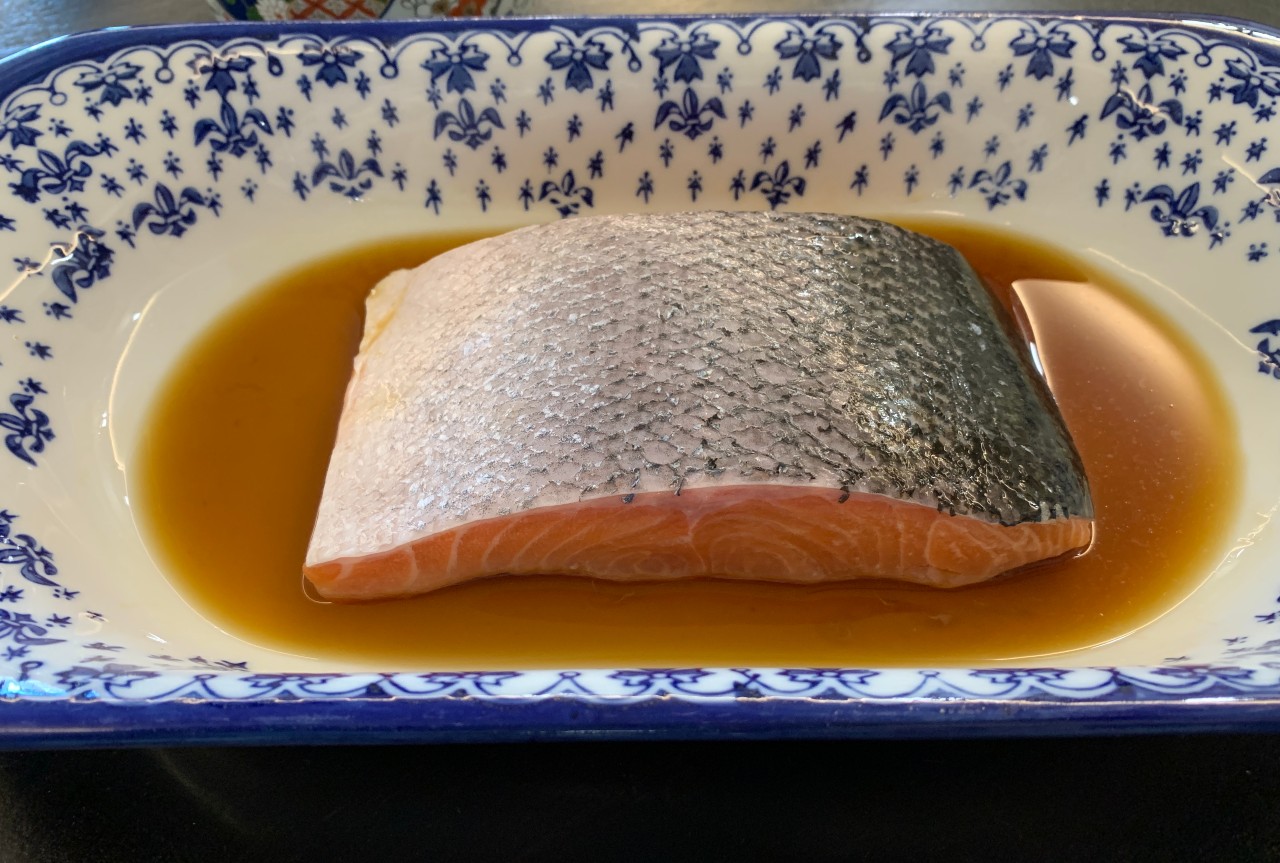 3. Remove salmon from fridge. While the salmon is soaking in the marinade, the liquid would gradually transform from clear to slightly cloudy as the strong alcohol in the gin “cooks” it.
3. Remove salmon from fridge. While the salmon is soaking in the marinade, the liquid would gradually transform from clear to slightly cloudy as the strong alcohol in the gin “cooks” it.
4. Cut salmon into slices of 0.5cm-1cm in thickness. In a small mixing bowl, combine garlic and mint.
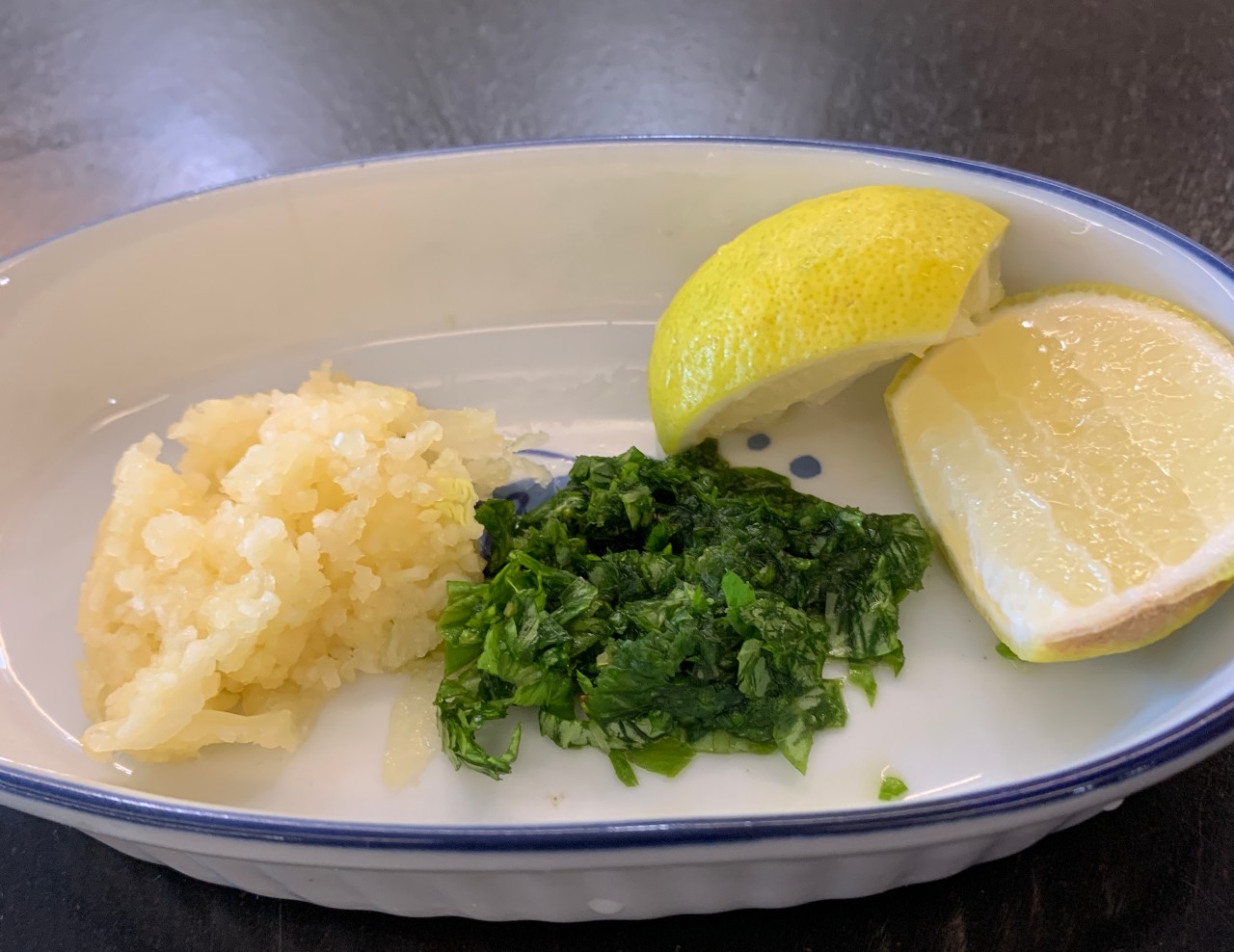 Spoon a teaspoon on top of rolled salmon. Repeat with remaining salmon pieces until aromatic mixture is used up.
Spoon a teaspoon on top of rolled salmon. Repeat with remaining salmon pieces until aromatic mixture is used up.
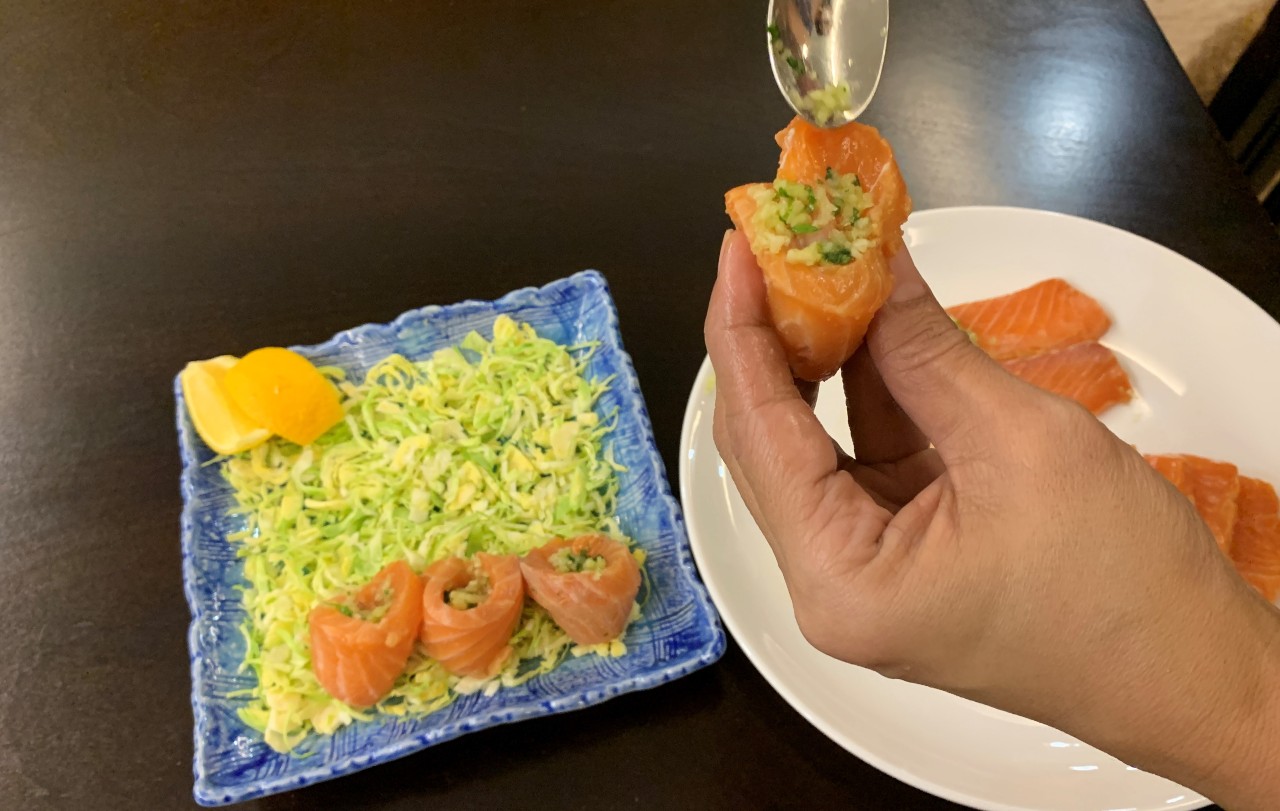 5. Combine marinade ingredients in a small mixing bowl. Drizzle 2 tablespoons of marinade over rolled salmon. Then squeeze lemon juice all over.
5. Combine marinade ingredients in a small mixing bowl. Drizzle 2 tablespoons of marinade over rolled salmon. Then squeeze lemon juice all over.
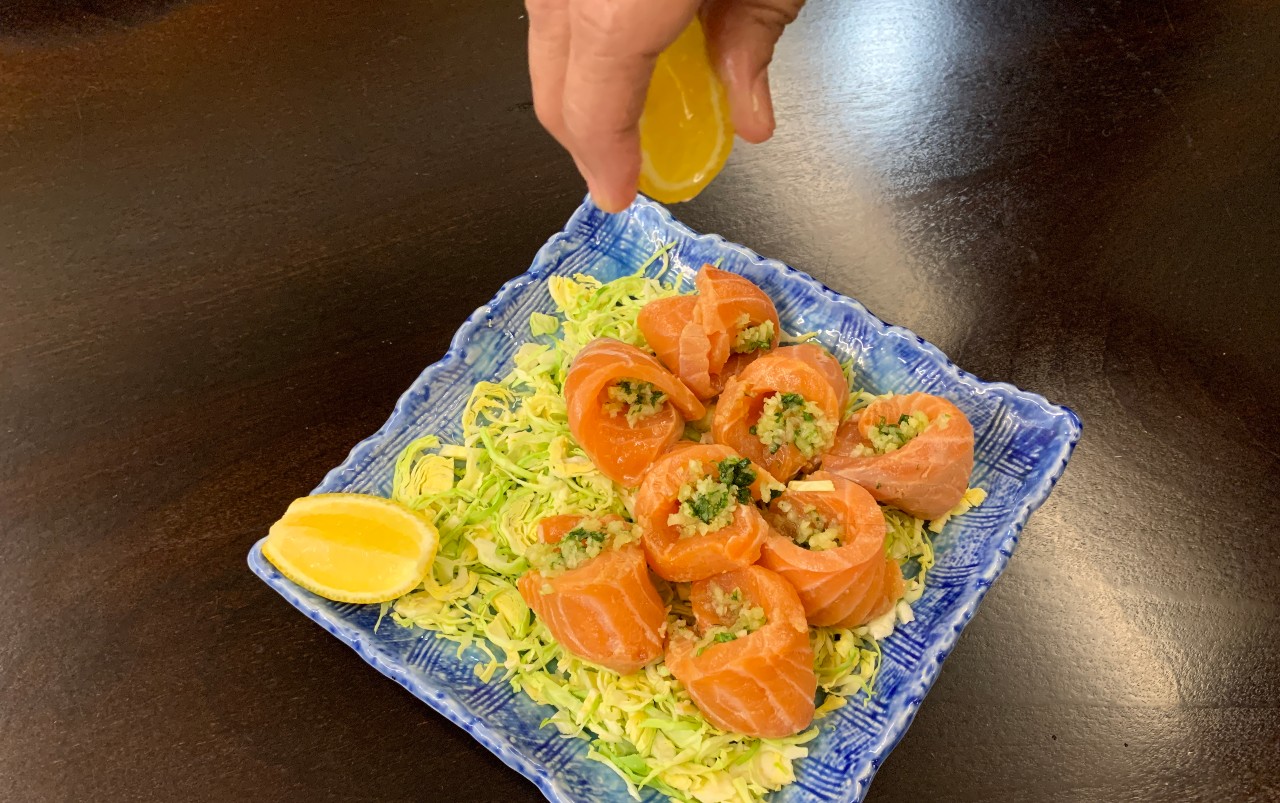 6. Using a pepper mill, grind coarse salt and crushed pepper over salmon. Serve on a bed of chilled fresh lettuce.
6. Using a pepper mill, grind coarse salt and crushed pepper over salmon. Serve on a bed of chilled fresh lettuce.
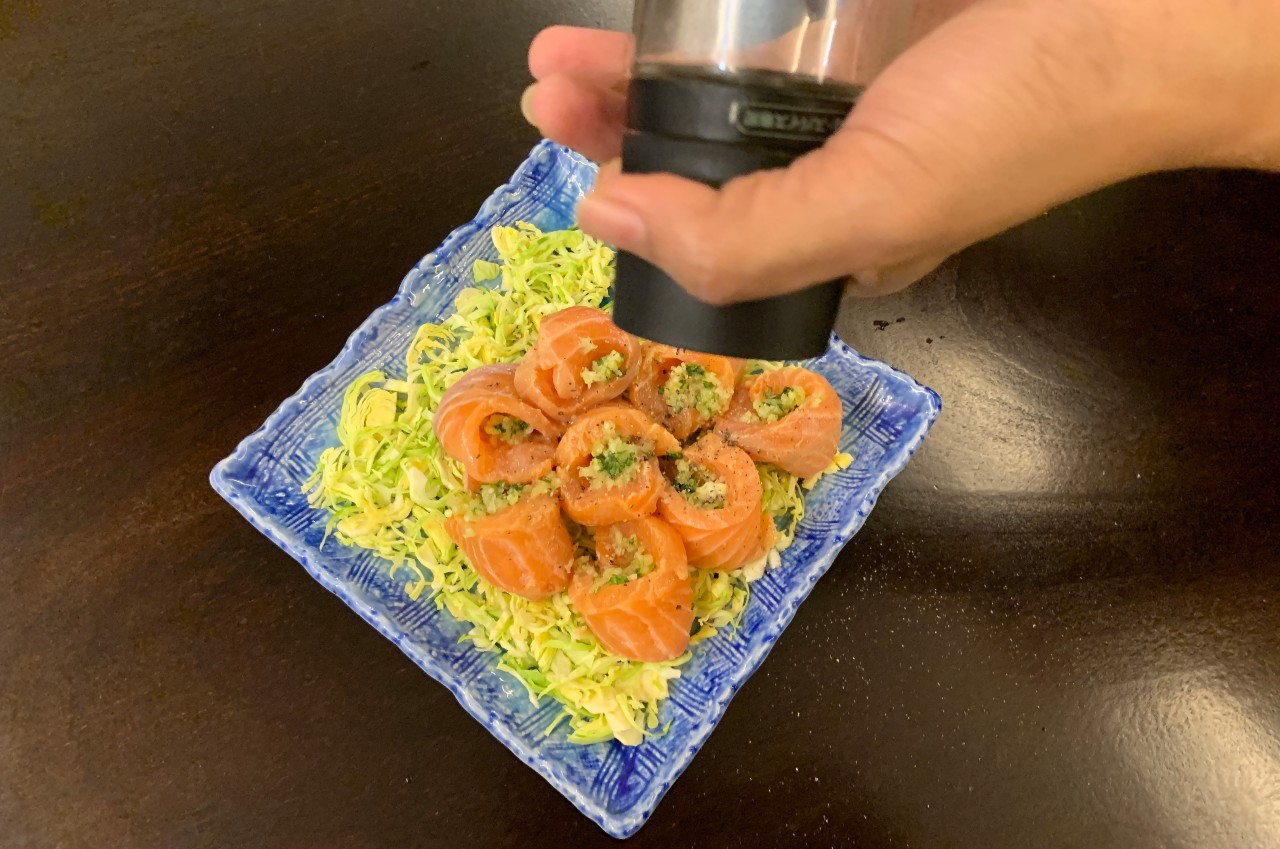
TIP: Opt for sashimi-grade salmon, often sold absolutely fresh where the fish is good enough to be eaten partially raw. Buy salmon at supermarkets that sell fresh sashimi.
TECHNIQUE: Gin has a strong alcohol content (47%) and when combined with vinegar and salt, they work together to “cook” the surface of the salmon. Citric acid (found in lemon juice) breaks down protein structure, creating a chemical transformation known as denaturation of protein. Salt on the other hand, cures the salmon meat, completing the ‘cooking’ process.
Photos: John Bo
Click on STORM-Asia/food for more recipes and reviews of restaurants.
If you have a simple recipe to share, please email it whipitup@storm.sg.
You may like to try these recipes:
Grilled Lobster with Asian Soy Dressing



















